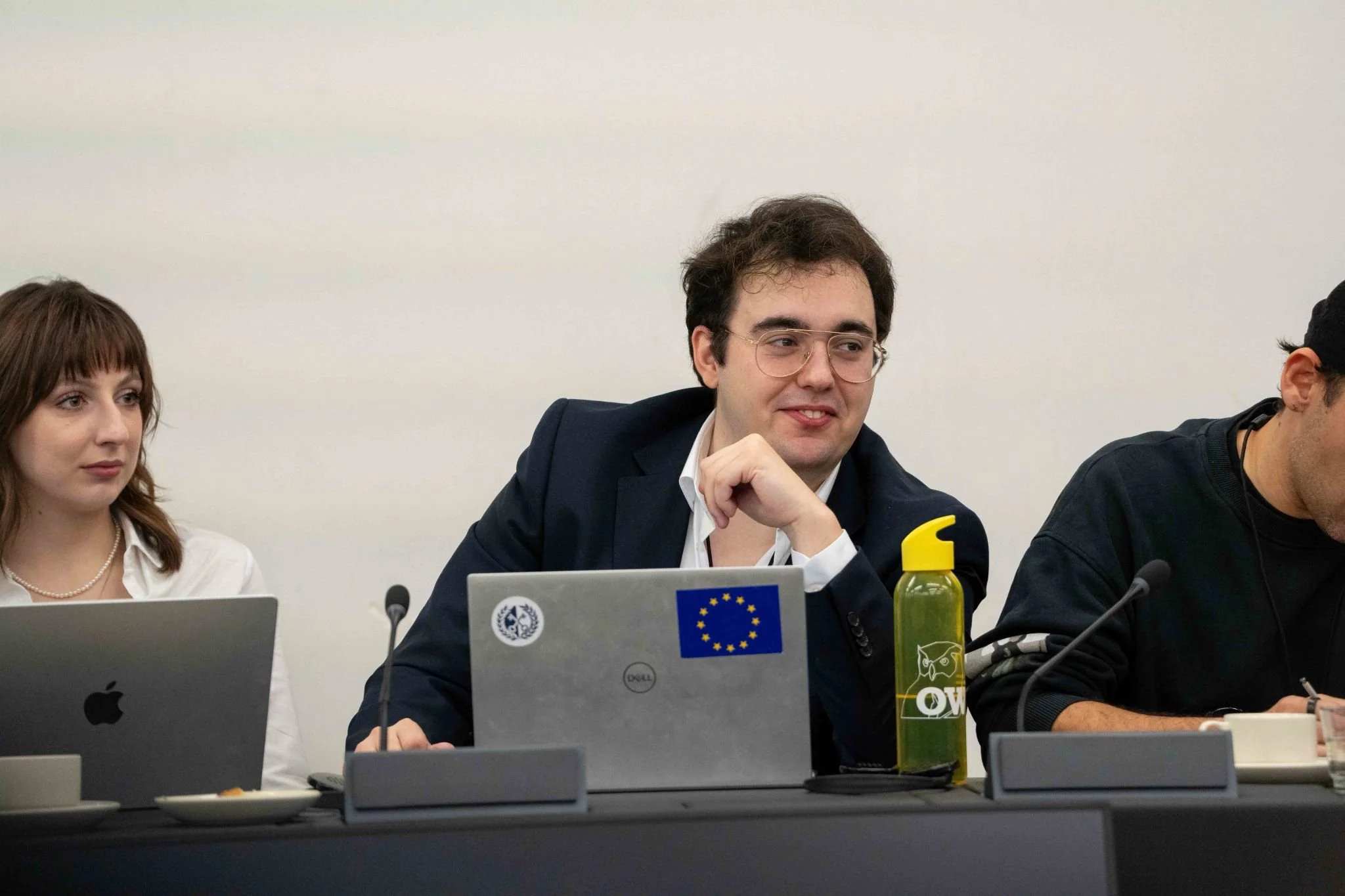The European Union's new global alliances
By Jokin de Carlos Sola
From the EU-Canada Summit
On 23 June 2025, Canada and the European Union signed a historic Security and Defence Partnership, deepening transatlantic cooperation amid a rise in global instability and questionable US reliability for security.
Prime Minister Mark Carney and top EU officials formalised the agreement in Brussels, marking the first such pact between the EU and a country in the Americas. This agreement enables Canada to participate in EU defence initiatives, such as the €150 billion SAFE fund, which supports joint arms procurement and cross-border investment in military capabilities. For Canada, this opens the door to faster and more cost-efficient acquisition of advanced weapons systems while integrating more closely with European defence industries. The pact also expands cooperation in critical areas, including cyber and space security, maritime operations, crisis management, counter-terrorism, and support for Ukraine.
Carney used the occasion to announce that Canada will meet NATO’s 2 per cent defence spending target this year and is considering raising it to 5 per cent by 2030. He also revealed that his country will review its commitment to the U.S.-made F-35 fighter jet programme and may consider European alternatives such as the Rafale or Eurofighter, signalling a bold reorientation of Canadian defence procurement.
The partnership builds on a broader trend of closer EU-Canada alignment on trade, digital regulation, and climate policy. But the timing is politically charged. With Donald Trump back in the White House, both sides appear eager to reinforce their mutual commitment to the transatlantic alliance, even as Washington’s posture grows increasingly unpredictable.
European Commission President Ursula von der Leyen described the pact as a milestone, declaring that 'hard times reveal true friends.' As tensions rise across Eastern Europe and the Indo-Pacific, the Canada–EU defence pact marks a pivotal shift in Western security strategy, anchored in shared values and strategic autonomy.
The UK wants to rebuild its education connections
In a likely reboot of UK–EU relations, ministers are reported to be negotiating to restore home-student status for EU citizens; they'd pay the same as British students and, possibly once more, draw on UK student loans and Erasmus-style mobility schemes.
This move, politically impossible to resist, poses tricky financial and administrative challenges for hard-pressed UK universities and UK students alike.
Nick Hillman, director of the Higher Education Policy Institute (HEPI), describes the suggestion as ‘superficially attractive’ but fraught with difficulties. The universities already make a loss on UK home students and would lose even more if EU students were treated in the same way. That might encourage institutions to restrict subsidised opportunities, putting British applicants out, which would be a blow to domestic access to higher education.
There is also contention as to whether the change would be from tuition alone to including payment for student loans. Bringing back the availability of loans can benefit EU applicants, but will penalise the government on repayment by graduates who travel abroad. Also noteworthy is the gap between postgraduates and undergraduates; however, much as there is mention of undergraduate fees, international postgraduate fees are much higher, and a cap on returned fees for EU postgraduates would further burden university finances.
The return to Erasmus+ is accompanied by a different aspect: although outward mobility has educational and cultural benefits, the UK's previous membership was also fiscally skewed: the UK attracted more EU students than British students who went abroad, creating a net fiscal loss.
Finally, special treatment for EU students might lead other international partners to ask for similar arrangements under bilateral agreements. HEPI, cautions that the government needs to be careful about balancing the broader implications of fairness, financing and diplomatic value.
ASIA-PACIFIC, the next Frontier
In recent weeks, the European Union has solidified its security outreach across the Asia-Pacific, putting the region at the centre of attention as a key strategic frontier.
Brussels and Manila initially signed on to a definitive Security and Defence Dialogue, which will lead to quarterly talks. The initiative, announced by Philippine Foreign Secretary Enrique Manalo and EU Chief of Foreign Affairs Kaja Kallas, highlights cooperation to tackle cyber threats, maritime security, crisis response, counterterrorism, disinformation, and actions under the ESIWA+ programme to protect sea cables and critical infrastructure.
Parallel to this, alongside the G7, the EU and Australia agreed to initiate negotiations towards a Security and Defence Partnership. EU Commission President Ursula von der Leyen called the deal an instrument to ‘open the door to joint defence procurement opportunities.’ As Canberra emphasised, common values and economic security, with free-trade talks progressing alongside. These negotiations follow similar deals with Japan and South Korea, constituting a joint EU Indo‑Pacific strategy.
Simultaneously, in May, French President Emmanuel Macron's visit to Indonesia sealed a razor‑edged defence agenda: in Magelang, at a Military Academy ceremony, ceremonial honours were exchanged, while in Jakarta, agreements were signed for 42 Rafale fighter jets, two Scorpène submarines, and radar systems, as part of an overarching plan to enhance the modernization of Indonesia's military and deepen strategic cooperation with France.
All together, these actions represent a coordinated EU‑and‑ally push into the Indo‑Pacific, one underpinned by a shared motivation emanating from fears about China's aggressiveness, cyber interference, and global instability, from the South China Sea to Ukraine. Through new alliances in Southeast Asia, formal security channels with the Philippines, increased procurement cooperation with Australia, and concrete hardware deals with Indonesia, Europe is constructing a multipolar security network in the region.
The Asia‑Pacific is today the next frontier, not just economically, but also for strategic depth and defence alignment, defining a resilient, values-based order in an increasingly contested global landscape.



